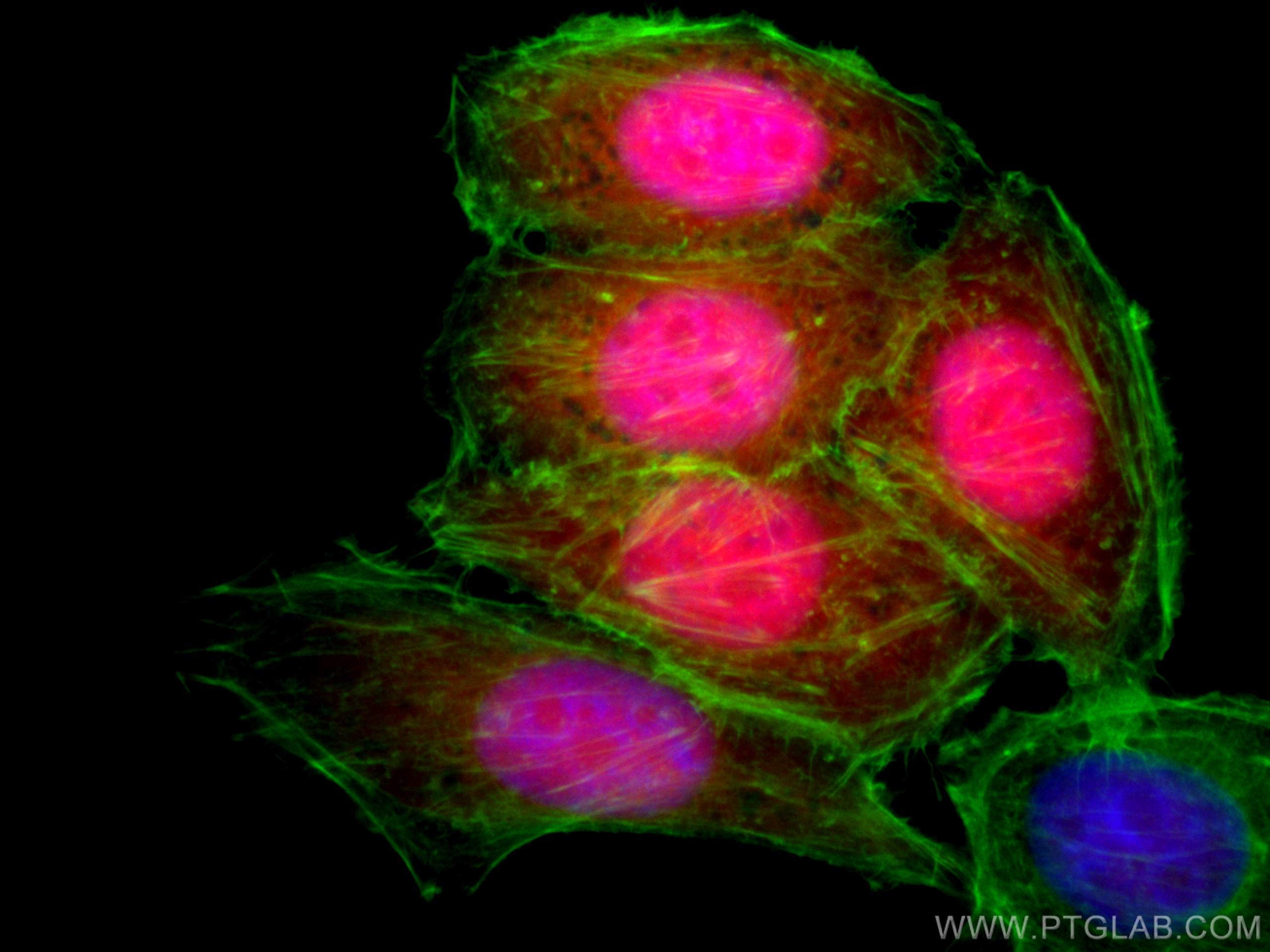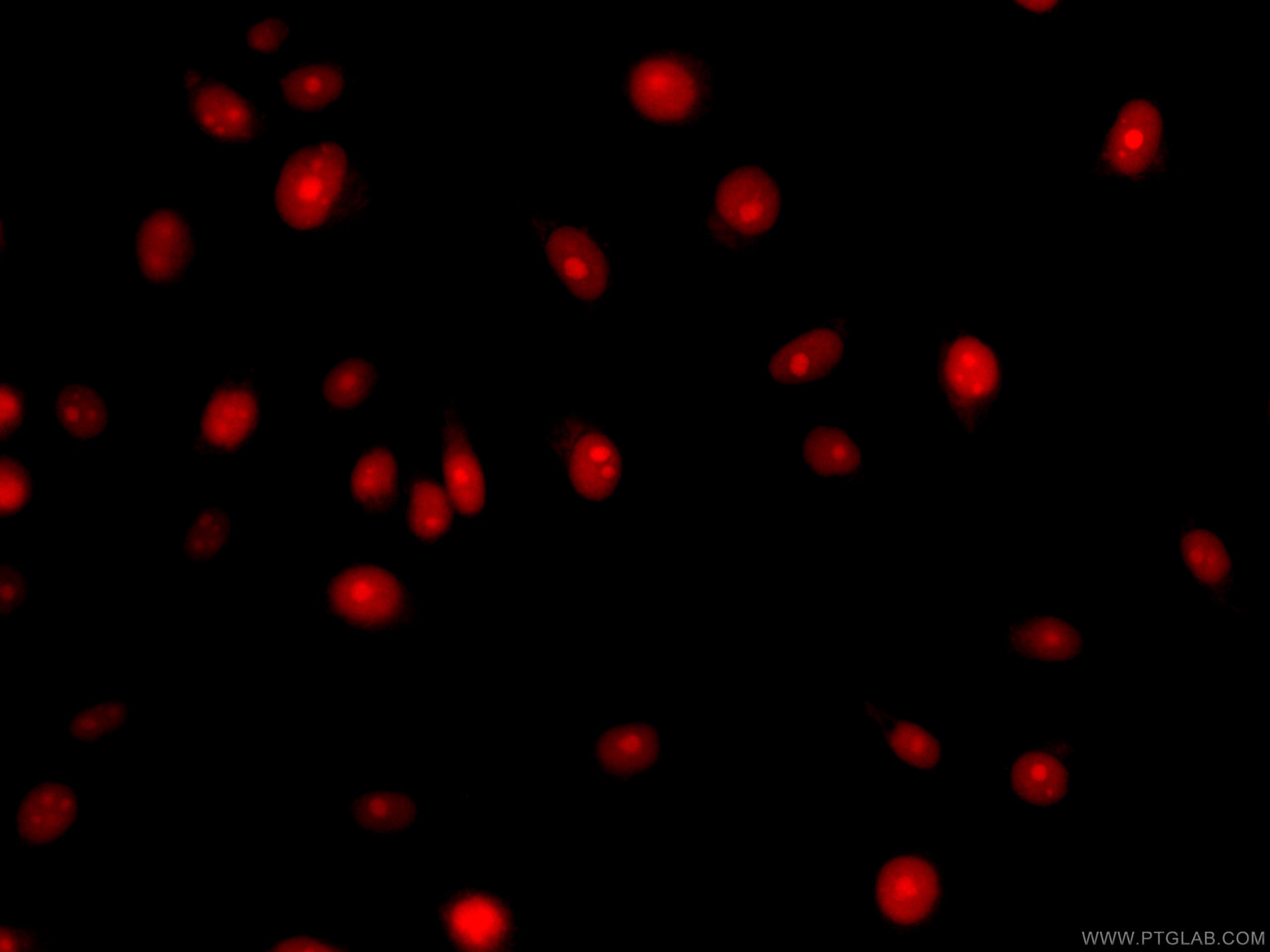Anticorps Monoclonal anti-TXN
TXN Monoclonal Antibody for IF
Hôte / Isotype
Mouse / IgG2a
Réactivité testée
Humain
Applications
IF
Conjugaison
CoraLite®594 Fluorescent Dye
CloneNo.
1F3C1
N° de cat : CL594-66475
Synonymes
Galerie de données de validation
Applications testées
| Résultats positifs en IF | cellules HepG2, |
Dilution recommandée
| Application | Dilution |
|---|---|
| Immunofluorescence (IF) | IF : 1:500-1:2000 |
| It is recommended that this reagent should be titrated in each testing system to obtain optimal results. | |
| Sample-dependent, check data in validation data gallery | |
Informations sur le produit
CL594-66475 cible TXN dans les applications de IF et montre une réactivité avec des échantillons Humain
| Réactivité | Humain |
| Hôte / Isotype | Mouse / IgG2a |
| Clonalité | Monoclonal |
| Type | Anticorps |
| Immunogène | TXN Protéine recombinante Ag6355 |
| Nom complet | thioredoxin |
| Masse moléculaire calculée | 12 kDa |
| Poids moléculaire observé | 12 kDa |
| Numéro d’acquisition GenBank | BC003377 |
| Symbole du gène | TXN |
| Identification du gène (NCBI) | 7295 |
| Conjugaison | CoraLite®594 Fluorescent Dye |
| Excitation/Emission maxima wavelengths | 588 nm / 604 nm |
| Forme | Liquide |
| Méthode de purification | Purification par protéine A |
| Tampon de stockage | PBS avec glycérol à 50 %, Proclin300 à 0,05 % et BSA à 0,5 %, pH 7,3. |
| Conditions de stockage | Stocker à -20 °C. Éviter toute exposition à la lumière. Stable pendant un an après l'expédition. L'aliquotage n'est pas nécessaire pour le stockage à -20oC Les 20ul contiennent 0,1% de BSA. |
Informations générales
TXN, TRDX, TRX, TRX1, ADF and SASP, belongs to the thioredoxin family. It participates in various redox reactions through the reversible oxidation of its active center dithiol to a disulfide and catalyzes dithiol-disulfide exchange reactions. TXN plays a role in the reversible S-nitrosylation of cysteine residues in target proteins, and thereby contributes to the response to intracellular nitric oxide. Nitrosylates the active site Cys of CASP3 in response to nitric oxide (NO), and thereby inhibits caspase-3 activity. TXN induces the FOS/JUN AP-1 DNA-binding activity in ionizing radiation (IR) cells through its oxidation/reduction status and stimulates AP-1 transcriptional activity.
Protocole
| Product Specific Protocols | |
|---|---|
| IF protocol for CL594 TXN antibody CL594-66475 | Download protocol |
| Standard Protocols | |
|---|---|
| Click here to view our Standard Protocols |



